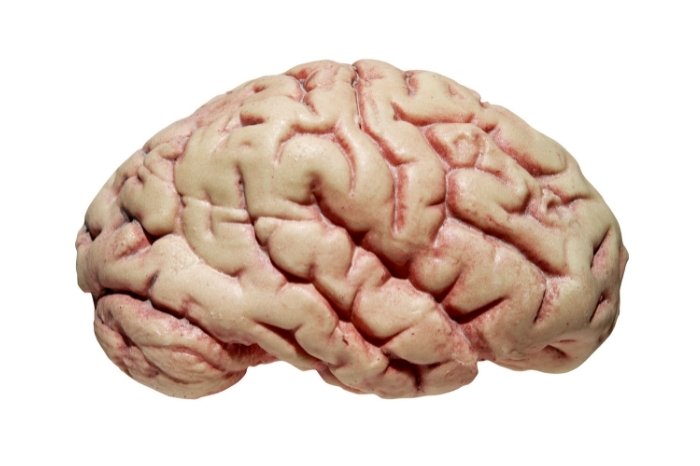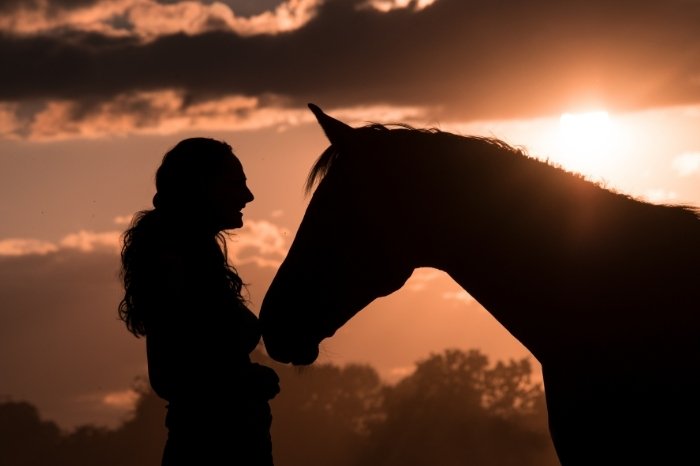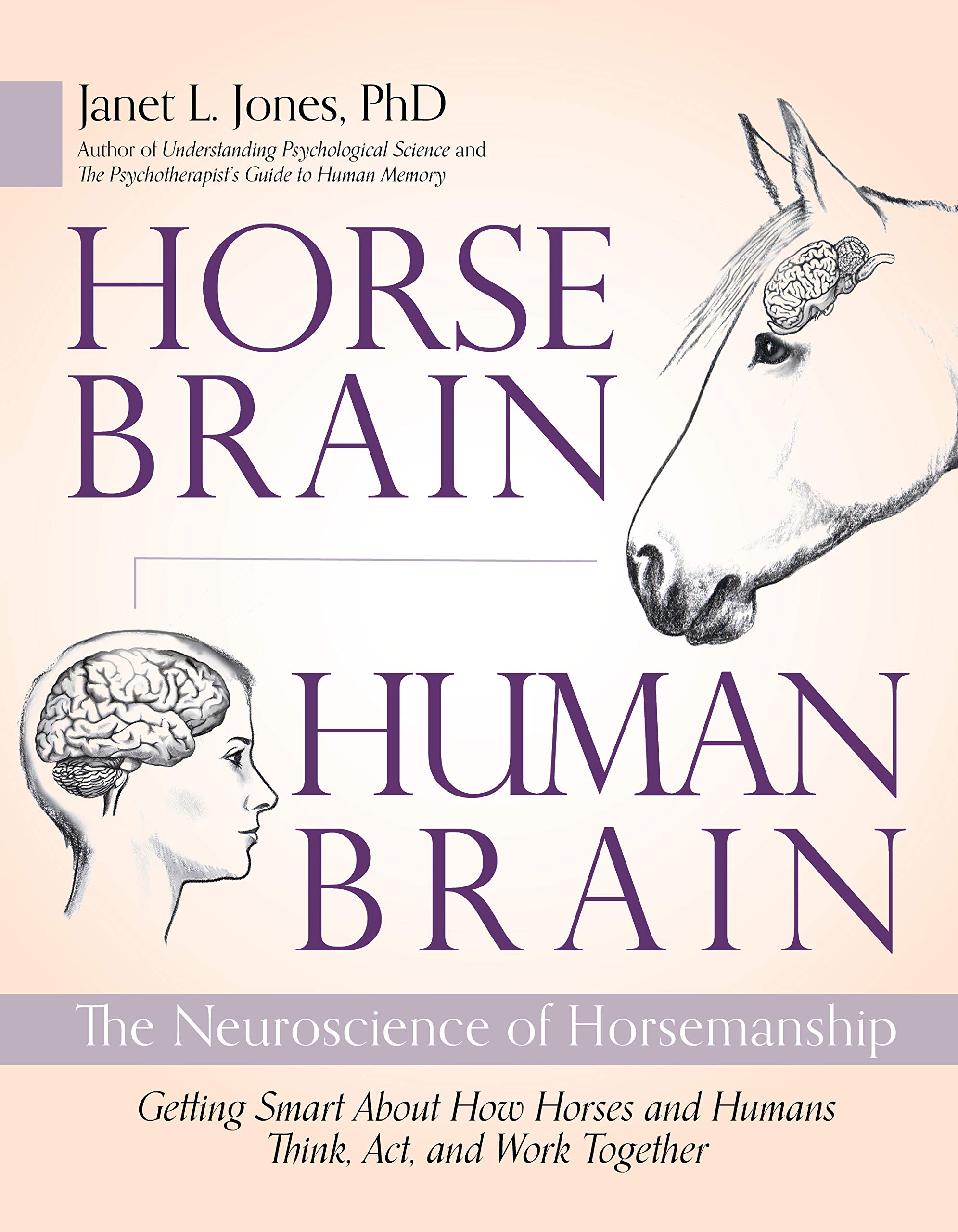Last Updated on April 7, 2023
Horses are large animals with considerably large heads, but do they have a brain to match? Just how big is a horses brain and are they as clever as humans?
Maybe you think that horses have huge brains, with the intelligence to match. Or perhaps in your experience horses do silly and stupid things, so they must have a tiny brain? Let’s take a look at horse brain size and find out!
What is a Brain?
It might sound like an obvious question, but if we’re talking about the size of the brain we need to know exactly what the brain is! The brain is basically the control center of the body. In mammals such as humans and horses the brain is normally located in the head and is protected by a thick skull.
Part of the central nervous system, the brain controls thought, memory, emotion, touch, motor skills, vision, breathing, temperature, and hunger. We might just think of our brains as to where our thoughts are processed, but it controls every process that regulates our body!

The structure of the brain does not contain any muscle and is made up of a large proportion of fat and water. The remainder consists of nerve cells, blood vessels, and other cells which help to maintain healthy brain tissue.
How Many Brains Does a Horse Have?
Technically horses only have one brain, but because of the way it is divided, it is often likened to two different brains. The equine brain, like the human brain, is divided into several different sections. It is also split in half down the middle, and it is the way that this division is formed in the horse that leads many people to think that horses have two brains.
The central division between each half of the brain is mainly formed of a bundle of fibers called the corpus callosum, which transmits signals and messages from one side of the brain to the other. In horses, the corpus callosum is far less developed than in humans. So, humans can think with both sides of the brain at the same time, while horses are not as developed in this sense.
As many trainers have found, this is why horses often need to be taught a new skill firstly on one side, and then on the other! They cannot transfer what they have learned directly from one side to the other, although they may learn much faster when it comes to learning on the second side. It may also explain why some horses perform far better on one side than the other.
What Are the Parts of the Horses Brain?
As well as being divided down the middle by the corpus callosum, the horse’s brain is also split into several different sections. Each section is responsible for different functions and is split into smaller subsections.
The first section is the hindbrain At the base of this is the brainstem, which transmits signals to and from the spinal cord. The hindbrain also contains the medulla, pons, and cerebellum. The cerebellum is of particular significance, as it controls coordination movement, posture, and balance.
The second section is the mid-brain, which is where auditory and visual reflexes and voluntary movement are controlled.
The final section of the brain is the forebrain which contains the largest part of the brain, the cerebrum. Within the forebrain is the limbic system, which manages essential functions such as learning, emotions, fear, and rage. Control of the endocrine system also occurs in the forebrain via the hypothalamus, thalamus, pituitary gland, and pineal glands.
This is just a brief overview of the parts of the horse’s brain, and in truth scientists still do not fully understand how brain tissue functions and interacts! It is thought that the body of the animal is ‘printed’ on a map of the cerebral cortex, the outer layer of the brain. This shows signals being received via the nervous system from various parts of the body.
This whole network is intricately interconnected with every single part of the body through a complex series of nerves, and the different body systems can adapt and respond to changes in circumstances in response to signals sent from the brain.
How big is a horses brain?
The size of a horse’s skull is quite large, and it would be easy to assume that they have quite a big brain in there. However, the brain of a horse is quite small – about 10 to 15 centimeters (4 to 6 inches) in diameter. To put this in context, about the size of a grapefruit!
The brain of a horse weighs between 1½ pounds and 2 pounds. This is about 0.1% of the horse’s overall body weight. It is incredible to think that something so tiny is so vital in carrying out all the daily functions that allow a horse to exist!
What Affects the Size of Horse Brain?
There is not much data available to help us understand what affects the size of a horse’s brain. The most obvious difference is the size of the horse – smaller horses tend to have smaller brains. This doesn’t seem to affect the overall intelligence of the animal though. In fact, ponies are often regarded as more intelligent than horses.
One factor affecting the size of the horse’s brain has been identified, and that is evolution. Amazingly, horses’ brains are gradually shrinking! It is believed that over a very long period, horses’ brains have shrunk by up to 16%.
Horse Brain, Human Brain: The Neuroscience of Horsemanship
It is impossible to identify why this has happened. The main factor is thought to be the domestication of horses. They just don’t need to think for themselves as much anymore! Another theory is that the breeding of horses to maintain characteristics has led to a gradual reduction in the size of the brain.
When the brains of domesticated horses are compared to wild horses, the wild brains are up to 30% larger. However, this doesn’t mean that our pet horses are not as intelligent as their wild counterparts! This reduction in brain size is most likely due to them no longer needing the parts of the brain which are required for them to survive in the wild.
Does The Size Of a Horse Brain Matter?
Whether the size of a brain makes a difference to the intelligence of a creature is not entirely clear. Some scientists think that the level of intelligence increases if the size of the brain in proportion to the body increases, but others disagree.
The brain of a horse is smaller than the brain of a human, even though the horse is a larger animal. If we look at the horse brain size compared to humans, a horse’s brain accounts for about 0.1% of the overall body weight, and the human brain is 2%. But does this mean that humans are more intelligent than horses?
Unfortunately, we have no way of working this out! Intelligence can be measured in many different ways. Even though humans are the dominant species, this doesn’t mean we are cleverer than horses. It has been shown that horses are not as skilled at reasoning and problem-solving as humans. However, many of us know a pony who can break free from a seemingly escape-proof field!
Are Horses as Intelligent as Humans?
Horses have retained many instinctive behaviors which humans have lost. The parts of the brain which control these instincts are much more highly developed in horses. For example, horses are prey animals and must always be ready to flee from potential predators. Therefore, the part of the brain which controls movement and coordination – the cerebellum – is much more developed in horses than in humans.
Other scientists have compared the brain size of horses to humans at different ages. They have concluded that the horse has a brain the size of a human child, with the mental capability of a 12-year-old. In the past, horses have been taught to perform basic math, reading, and even spelling exercises!
When you think about horses, you realize that they are intelligent but in very different ways from humans. We communicate by talking, which normally makes it very easy to get our point across. Horses however need to use a variety of different and very subtle ways to communicate, which is much more complex than our use of language. Try and explain how you are feeling without using words and you will see how difficult it is!

One final part of the equine brain which is highly developed is the area that processes scents. When a horse sniffs at something, the information he can gain from this is far more complex and informative than anything we could imagine. So, we humans might be able to write poetry or solve puzzles, but we can’t figure out what is happening a mile away just by smelling the breeze!
Summary
So, as we’ve learned, horses’ brains are relatively small in size compared to humans. However, with brains size doesn’t always matter, and horses are generally considered to be quite intelligent. They also have highly developed areas of the brain for important skills such as analyzing smells and fleeing from predators.
We’d love to hear your thoughts on the size of horses’ brains! Perhaps your pony is an absolute genius? Or maybe your horse does the most stupid things, and you wonder if he has a brain at all?! Please add your comments below!
Frequently Asked Questions

Kate Chalmers is a qualified veterinary nurse who has specialized in horse care for the vast majority of her career. She has been around horses since she was a child, starting out riding ponies and helping out at the local stables before going on to college to study Horse Care & Management. She has backed and trained many horses during her lifetime and competed in various equestrian sports at different levels.
After Kate qualified as a veterinary nurse, she provided nursing care to the patients of a large equine veterinary hospital for many years. She then went on to teach horse care and veterinary nursing at one of the top colleges in the country. This has led to an in-depth knowledge of the care needs of horses and their various medical ailments, as well as a life-long passion for educating horse owners on how to provide the best possible care for their four-legged friends.
Kate Chalmers BSc (Hons) CVN, Dip AVN (Equine) Dip HE CVN EVN VN A1 PGCE

